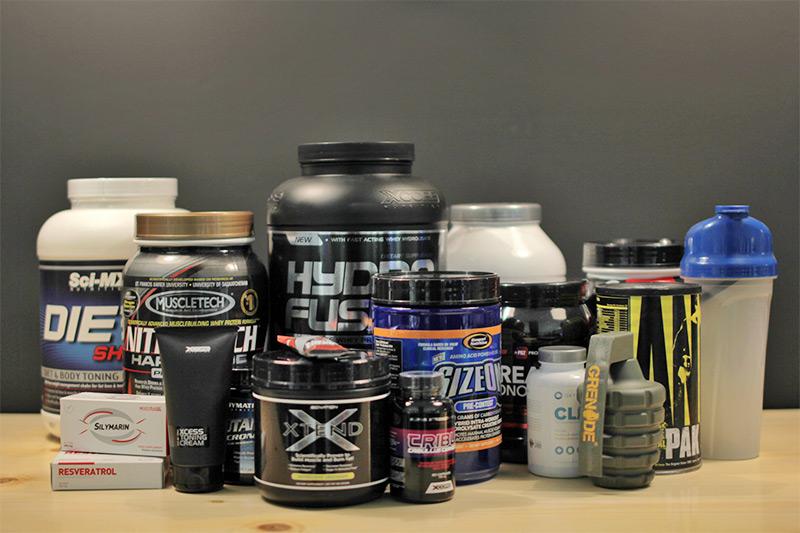Bahl: You are not what you eat: protein only does so much
Protein supplements will not magically make your muscles bigger, and most people are already getting more than the needed amount of protein because of their diets. In order to boost muscle growth it is necessary to work hard while lifting weights and to eat a healthy diet.
March 3, 2014
So you want to bulk up? Gain that weight? I feel like putting on muscle is a common and popular goal amongst college students, specifically in the male population. You step in the gym and see students pumping out their reps and carrying around their protein tumblers. But is supplemental protein really necessary to get the body you want?
My twin brother has a tall, cross country runner build and struggles to put on weight and keep it there. Conversely, my older brother is a dedicated power-lifter who swears by his high protein recovery stir-fries and protein supplements. When he caught wind of my lanky brother’s goal to start lifting and putting on muscle weight, he sent him a pack of protein powders to use after workouts. As a nutritional science student, my immediate reaction was to cringe because I believe that protein powders are not necessary for getting desired results. There is a common misperception in the United States that when you eat more protein, you will build more muscle. However, this is not completely true when, in fact, you are not what you eat.
What many gym-goers trying to build muscle need to realize is that the amount of protein to meet their need is a lot lower than they might think. Rose Martin, senior lecturer of food science and human nutrition, says it this way, “The average protein intake in the United States is 1.5 to 2 times more than the recommended intake.” She does make the disclaimer that there is not upper limit for protein, so getting “too much” is not a risk, just superfluous.
In comparison to the protein needs of serious athletes, our average intake is close and even exceeding their heightened recommendation. According to the ASCM, American College of Sports Medicine, the protein needs of endurance athletes range from 1.2-1.4 g/kg body weight 1.6-1.7g/kg body weight for strength athletes. With our average intake between 68-100g per day, for women and men respectively, we are eating enough protein to fuel a 150 pound athlete, when most of us are not doing the amount of exercise required to justify that level of intake.
So we can see that we are eating plenty of protein already, which is why I believe that protein supplements are not really necessary. In her book, The Sports Nutrition Guidebook, registered dietician Nancy Clark, discusses the confusion among muscle builders in believing that taking extra protein is the key to building lean mass, forgetting that we can get sufficient protein from the food we eat. Martin reminds us that “You are not what you eat … the body cannot store protein and eating extra does not mean you are storing it as muscle.” She likens this logic to eating hair to grow hair … it just doesn’t work that way. Both Clark and Martin say that the key to getting the desired results depends on putting in the hard work by lifting weights at the gym and dedication to eating a healthy, high quality diet.
So before you fall for the enticing advertisements for all of those protein supplements, consider the reality of these products. While they are convenient, a good source of calories, and not particularly harmful, they are often expensive and can taste really nasty. You can take in adequate protein in a much more enjoyable way with real food that tastes better, without having to choke down that shake. So with all of these things considered, protein supplements are unnecessary. Martin summarizes and advises with this, “Don’t overestimate the importance of them [supplements], they are not the magical solution.”







